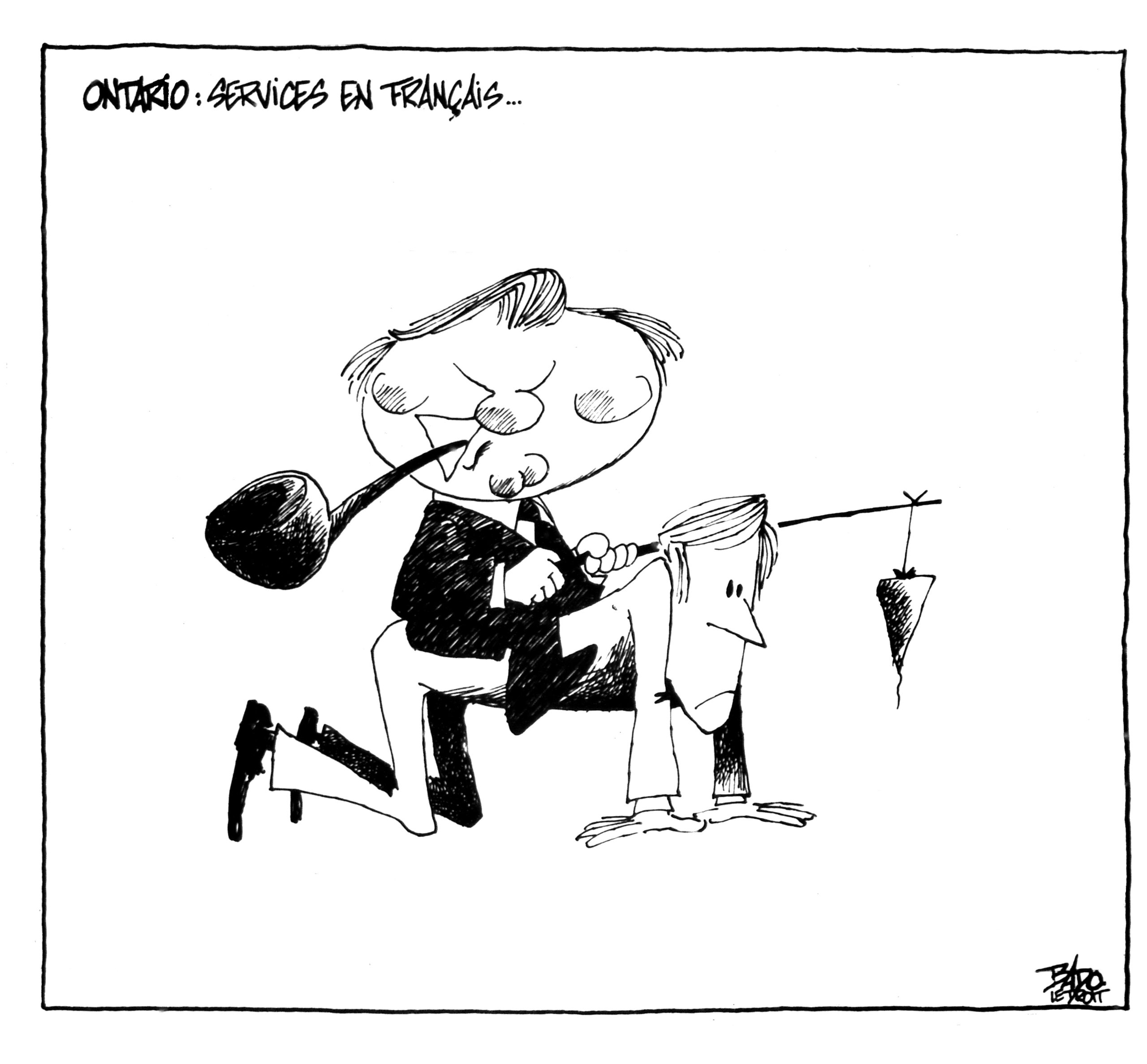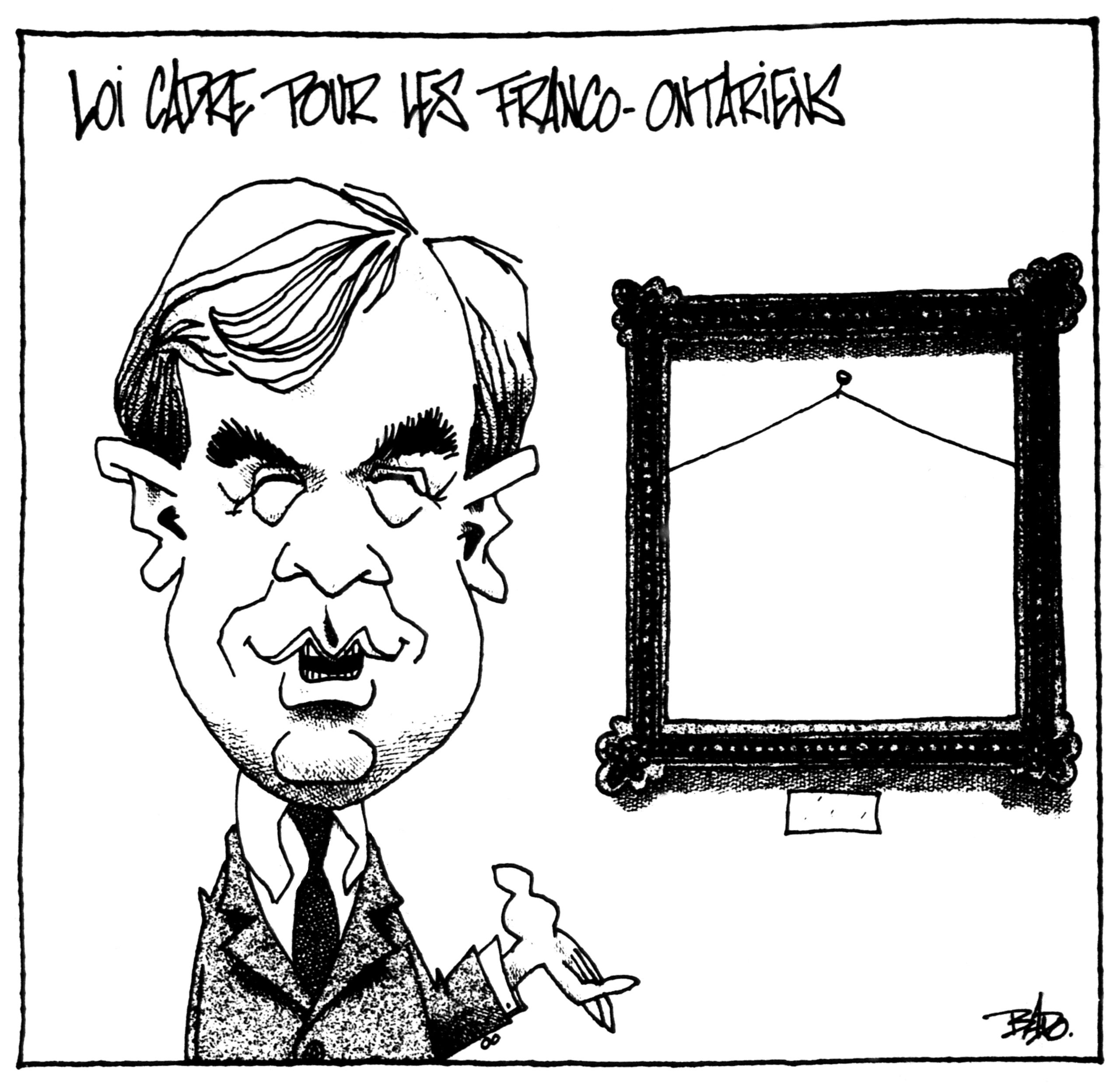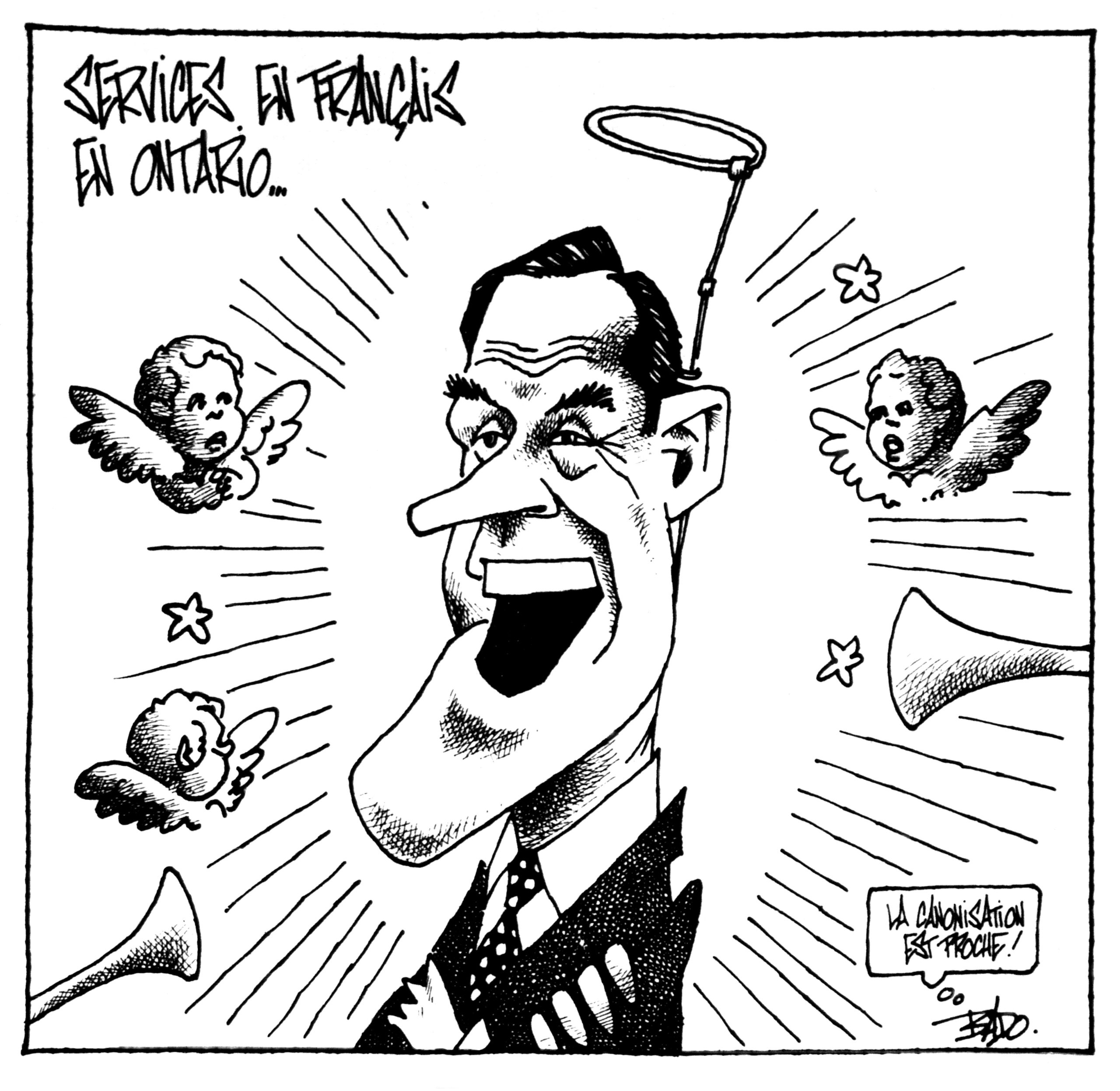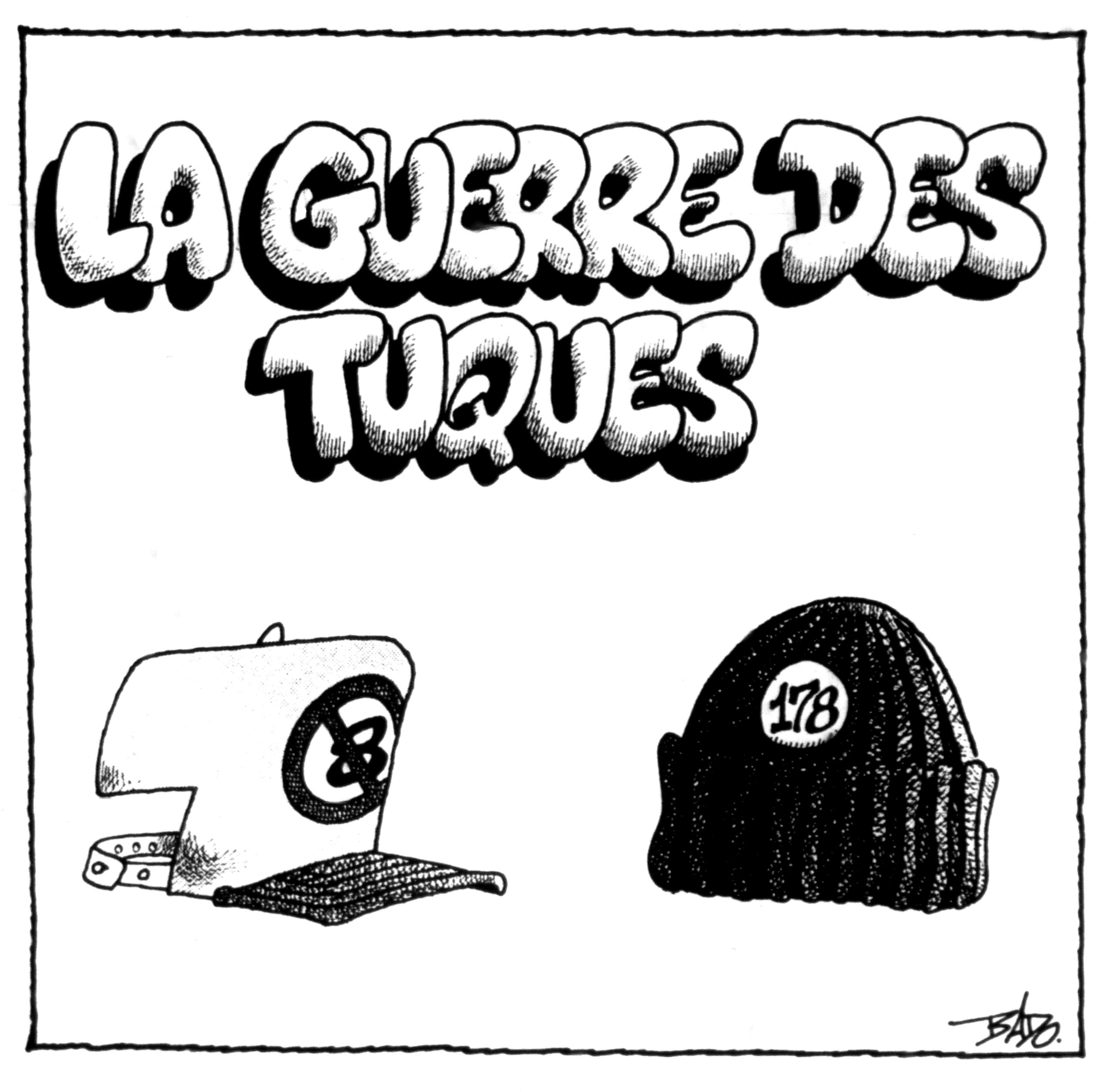Bill 8
Enacted in 1986 by the Ontario Legislative Assembly, the French Language Services Act (Bill 8) gives French equal status in the Legislative Assembly and guarantees the public the right to receive government services in French in Ontario. The preamble to the Act highlights the historic role of French in Ontario, that the language is an official language in the courts and education, and that it is desirable to guarantee its use in Ontario government institutions. A former Mayor of Vanier, Bernard Grandmaître, proposed the bill as Minister responsible for Francophone Affairs. Because of that important gesture, he came to be known as the father of Bill 8.

A provincial government official declares that there is a bill on French-language services in Ontario, but specifies that does not mean the province is prepared to amend its Regulation.

Elected to the Legislative Assembly during a by-election in 1984, Bernard Grandmaître is named Minister responsible for Municipal Affairs and Minister responsible for Francophone Affairs in 1985.
A first attempt to introduce such an act in Ontario had been made almost ten years earlier. That bill, proposed by Albert Roy in 1978, was rejected by Bill Davis, Ontario’s Conservative Premier from 1971 to 1985. In an unusual twist, Bernard Grandmaître ended up taking the place of Albert Roy as member for the constituency of Ottawa-East, now known as Ottawa-Vanier. In 1984, Bernard Grandmaître decided to step into provincial politics. He was successively Minister responsible for Municipal Affairs, Minister responsible for Francophone Affairs, and Minister of Revenue.

In 1986, David Peterson’s Liberal government adopts Bill 8, a framework law on French language services in Ontario.

Bernard Grandmaître, Minister responsible for Francophone Affairs, on the occasion of the adoption of Bill 8, earning him the moniker Father of Bill 8.

Parallel between Bill 8 in Ontario and Bill 178 amending the Charter of the French Language, illustrating the diametrically opposed situation of the two language minorities.
Bill 8 was unanimously passed on November 18, 1986. Franco-Ontarians would henceforth be able to receive services from the provincial government in French, including to obtain a birth certificate, a driver’s licence, a health card, etc. Without enacting official bilingualism across Ontario, that Act provides a minimum threshold for many Franco-Ontarians, as well as an acceptable compromise for the Anglophone majority. The Act designates 26 cities or counties where Francophones represent a certain proportion of the population, that is to say at least 5,000 people or 10% of the population. In those places, Francophones are entitled to receive services in French from public and government organization. The Act came into effect on November 19, 1989. It was amended in 2021 to include the right to active offer, which is to say that ministries have to promote their services in French and take steps to ensure their services are used.



